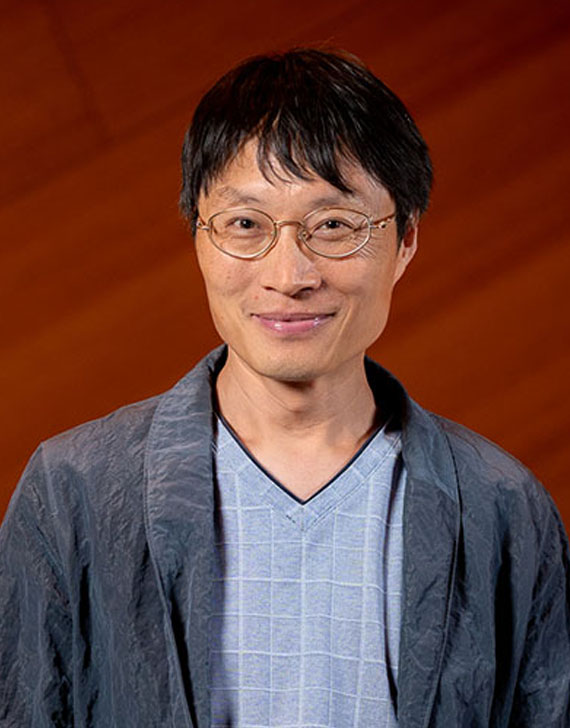
Lei Liang
Lei Liang (b.1972) is a Chinese-born American composer whose works have been described as “hauntingly beautiful and sonically colorful” by The New York Times, and as “far, far out of the ordinary, brilliantly original and inarguably gorgeous” by The Washington Post.
Winner of the 2011 Rome Prize, Lei Liang is the recipient of a Guggenheim Fellowship, an Aaron Copland Award, a Koussevitzky Music Foundation Commission, a Creative Capital Award, and the Goddard Lieberson Fellowship from the American Academy of Arts and Letters. His concerto Xiaoxiang (for saxophone and orchestra) was named a finalist for the 2015 Pulitzer Prize in Music. His orchestral work, A Thousand Mountains, A Million Streams, won the prestigious 2021 Grawemeyer Award for Music Composition.
Lei Liang was commissioned by the New York Philharmonic for the inaugural concert of the CONTACT! new music series. Other commissions and performances come from the Taipei Chinese Orchestra, Boston Modern Orchestra Project, Berkeley Symphony Orchestra, the Heidelberger Philharmonisches Orchester, the Thailand Philharmonic, the Fromm Music Foundation, Meet the Composer, Chamber Music America, the National Endowment for the Arts, MAP Fund, Mary Flagler Cary Charitable Trust, the Manhattan Sinfonietta, Arditti Quartet, Shanghai Quartet, the Scharoun Ensemble of the Berlin Philharmonic, San Francisco Contemporary Music Players, New York New Music Ensemble and Boston Musica Viva, pipa virtuoso Wu Man, violinist Cho-Liang Lin, among others.
Lei Liang’s ten portrait discs are released on Naxos, Mode, New World, BMOP/sound, Albany, Encounter and Bridge Records, along with more than a dozen compilation discs. As a scholar and conservationist of cultural traditions, he served as editor and co-editor of seven books, and published more than forty articles. In 2020, Shanghai Conservatory of Music Press publishes a biography of Lei Liang, with essays by composers, musicologists, ethnomusicologists, performers, music critics, literary scholars, poets, and scientists. The book was edited by Prof. Qin Luo of Shanghai Conservatory.
From 2013-2016, Lei Liang served as Composer-in-Residence at the Qualcomm Institute where his multimedia works preserve and reimagine culture through combining advanced technology and scientific research. In 2018, Liang returned to the Institute as its inaugural Research Artist-in-Residence. In 2023, the Institute launched “Lei Lab” where he continues to collaborate with engineers, geologists, oceanographers and software developers, to explore what he calls “the unique potential for learning offered by creative listening.”
Lei Liang’s recent works address issues of sex trafficking across the US-Mexican border (Cuatro Corridos), America’s complex relationship with gun and violence (Inheritance), and environmental awareness through the sonification of coral reefs.
Lei Liang studied composition with Sir Harrison Birtwistle, Robert Cogan, Chaya Czernowin, and Mario Davidovsky, and received degrees from the New England Conservatory of Music (BM and MM) and Harvard University (PhD). A Young Global Leader of the World Economic Forum, he held fellowships from the Harvard Society of Fellows and the Paul & Daisy Soros Fellowships. Lei Liang taught in China as a distinguished visiting professor at Shaanxi Normal University College of Arts in Xi’an; served as honorary professor of composition and sound design at Wuhan Conservatory of Music and as visiting assistant professor of music at Middlebury College. He is Chancellor’s Distinguished Professor of Music at the University of California, San Diego where he served as chair of the composition area and Acting Chair of the Music Department. Starting from 2018, Lei Liang serves as the Artistic Director of the Chou Wen-chung Music Research Center in China. Lei Liang’s catalogue of more than a hundred compositions is published exclusively by Schott Music Corporation (New York).
For more information, see Lei Liang’s website.